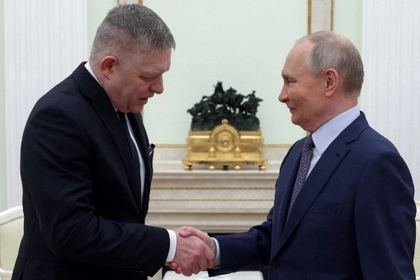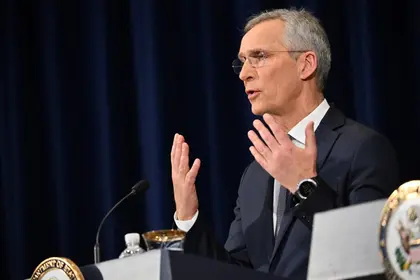Some two-thirds of NATO's 31 member countries are expected to reach the defence spending target of two percent of GDP in 2024, officials said Tuesday, almost double last year's number.
Alliance chief Jens Stoltenberg is due to detail NATO's new estimates on Wednesday after former US president Donald Trump unleashed a political firestorm by saying he would "encourage" Russia to attack countries not paying their share.
JOIN US ON TELEGRAM
Follow our coverage of the war on the @Kyivpost_official.
The estimates will indicate that around 20 allies are on track to meet the two-percent target this year, officials said.
The Republican White House frontrunner was rebuked from all sides after saying in a stump speech Saturday he would not defend NATO members who had not met their financial obligations, in his most extreme broadside against the organisation.
NATO in 2014 set a target for members to spend two percent of their gross domestic product on defence in response to Russia's seizure of Crimea from Ukraine.
During his time as president, Trump railed against Washington's NATO allies to pressure them to spend more on defence -- and his goading may have helped speed up the process.
But still, in 2023, only 11 of the 31 allies were down to hit the target and the United States still accounts for the vast bulk of combined defence expenditure.
Moscow's full-scale invasion of Ukraine in 2022 served as a wake-up call for European countries and saw NATO turn the two-percent figure into a minimum requirement.

Zelensky Accuses Slovak PM of Wanting to ‘Help Putin’
Key players such as Germany have ramped up their defence spending and are expected to meet the target this year.
Trump's weekend comments drew condemnation from leaders including US President Joe Biden -- whom he looks set to face in November's presidential election -- and German Chancellor Olaf Scholz.
Scholz warned that casting doubt on NATO's collective defence guarantee which has safeguarded Europe since World War II was "irresponsible and dangerous".
Trump pushed backed at the criticism by insisting that his strongarm tactics had made NATO stronger and that "money came rolling in" after he assailed member countries that did not pay their fair share.
You can also highlight the text and press Ctrl + Enter






